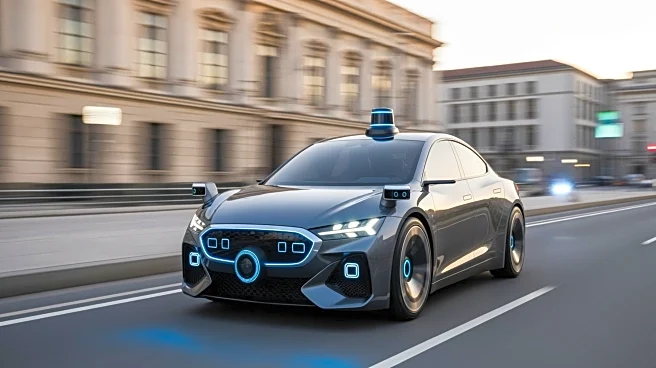What's Happening?
China's self-driving car technology is rapidly expanding into Europe, with companies like Pony.ai and Baidu's Apollo Go establishing partnerships and trials across European cities. This expansion is not
only about market influence but also about shaping global norms in data handling, safety protocols, and AI ethics. The move is seen as a strategic effort by China to project soft power and influence technological standards in Europe, offering an alternative to U.S. restrictions on Chinese AI technologies.
Why It's Important?
China's technological expansion into Europe has significant implications for global tech sovereignty and geopolitical competition. By establishing a presence in Europe's automotive ecosystem, China can influence future mobility standards and gain legitimacy in international tech collaborations. This could shift the balance of power in tech innovation and data sovereignty, challenging U.S. dominance in these areas.
What's Next?
As China continues to expand its self-driving technology in Europe, there may be increased scrutiny and regulatory challenges from European governments concerned about data privacy and security. The European Commission's mobility strategy aims for large-scale autonomous integration by 2030, which could further accelerate China's influence in the region.
Beyond the Headlines
The cultural and ethical dimensions of China's tech expansion are significant, as they raise questions about the integration of Chinese standards in global tech governance. This could lead to long-term shifts in how technology is developed and regulated worldwide.









